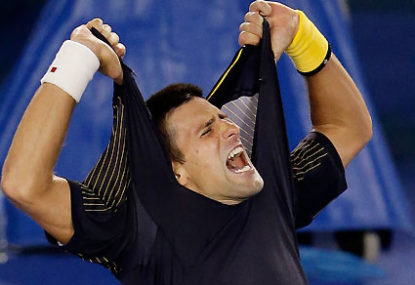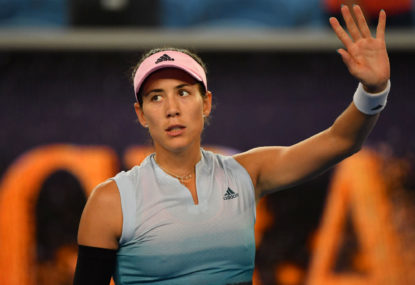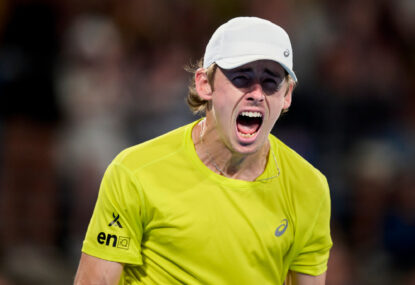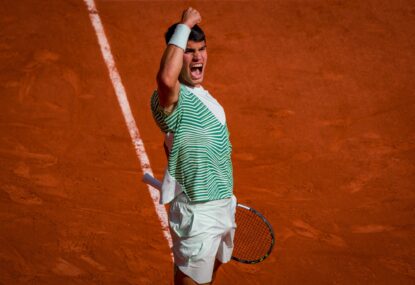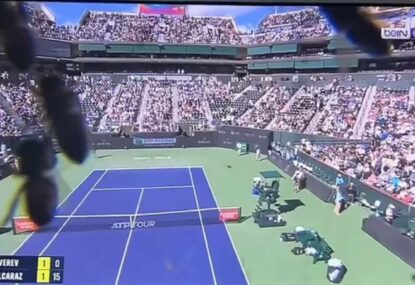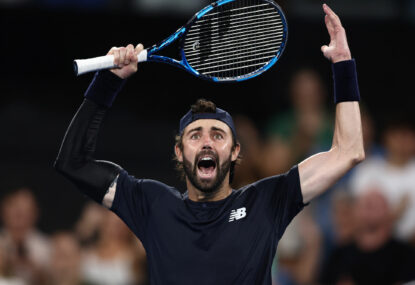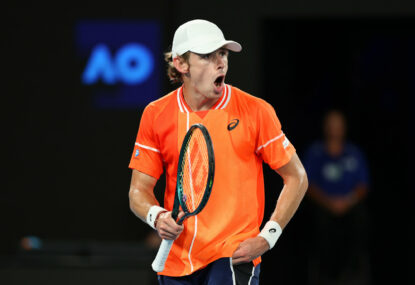Novak Djokovic enters the French Open trying to lift his first Coupe des Mousquetaires at the Stade Roland Garros. He will be attempting to become only the eighth man in history to have won all the four Grand Slam events.
Simultaneously, he will be trying to become the first man since Jim Courier way back in 1992 to win both the Australian Open and the French Open titles in the same calendar year.
The Aussie-French double has historically been the least attained double with only three players able to achieve this (Rod Laver in 1969, Mats Wilander in 1988 and Jim Courier in 1992).
The most successful double achieved has been the Wimbledon-US Open double, which has been done 14 times. Roger Federer has done this four times with Jimmy Connors, John McEnroe and Pete Sampras completing the double twice.
The US Open-Aus Open double has been achieved nine times with Pete Sampras, Andre Agassi and Roger Federer doing it twice. The Channel Slam (French-Wimbledon double), often regarded as the toughest double to achieve, has been done seven times with Swede Bjorn Borg completing this three times in a row (1978, 1979 and 1980) and Rafael Nadal repeating the feat twice (2008 and 2010).
As mentioned, the Aussie-French double has been achieved only thrice. But why?
1. Big players skipping the Australian Open
Beginning in 1969, when the first Australian Open was held on the Milton Courts at Brisbane, the tournament was open to all players, including professionals who were not allowed to play the traditional circuit. Nevertheless, except for the 1969 and 1971 tournaments, many of the best players missed this championship until 1982, because of the remoteness, the inconvenient dates (around Christmas and New Year’s Day), and the low prize money.
In 1970, George MacCall’s National Tennis League, which employed Rod Laver, Ken Rosewall, Andrés Gimeno, Pancho Gonzales, Roy Emerson, and Fred Stolle, prevented its players from entering the tournament because the guarantees were insufficient, and the tournament was ultimately won by Arthur Ashe. Six-time French Open Champion Bjorn Borg played in the Australian Open only once in 1974 at the age of 17.
Before the Melbourne Park stadium era, tournament dates fluctuated as well, in particular in the early years because of the climate of each site or exceptional events. For example, the 1919 tournament was held in January 1920 (the 1920 tournament was played in March) and the 1923 tournament in Brisbane took place in August when the weather was not too hot and wet.
After the 1977 tournament was held between December 1976 and January 1977, the organisers chose to move the next tournament forward a few days, and a second 1977 tournament was played (ending on December 31). But this failed to attract the best players. From 1982 to 1985, the tournament was played in mid-December. Then it was decided to move the next tournament to mid-January (January 1987), which meant there was no tournament in 1986.
Since 1987, the Australian Open date has not changed. However, some top players, including Roger Federer and Rafael Nadal, have said that the tournament is held too soon after the Christmas and New Year holidays, thus preventing players from reaching their best form, and expressed a desire to shift it to February. Such a change, however, would move the tournament outside the summer school holiday period, potentially impacting attendance figures.
2. Surface variation
The Australian Open was played on faster courts until 2007 (1905-1987 grass and 1988-2007 rebound ace) before it was decided to use plexi-cushion from 2008. Players have traditionally found it difficult to adjust to the surface played at the Australian Open.
Novak Djokovic achieved the three-peat in 2013 (champion in 2011, 2012, 2013) but no other player has been able to win it more than two times in a row in the Open era. The other grand slams have seen players winning five consecutive times, while since this is the first grand slam of the year, players are rusty and short on match practice and thus usually tend to struggle.
3. Question of momentum
There is a gap of almost four months between the Australian and French Opens, whereas the other three slams are spaced within four months of each other. Players do lose momentum after winning in Australia since such a big gap could often lead players losing thrust.
Also, after the Australian Open, players tend to go to the US to play on the outdoor hard courts in Indian Wells and Miami before coming back to Europe to participate on the clay (Monte Carlo, Hamburg/Madrid, Rome). These events are physically demanding and take a huge toll on the players. Thus by the time the big players are ready to compete at the French Open, they are perhaps stressed, having failed to recover in time.
The Australian Open champion has lost in the French Open finals six times in the Open era (Vilas in 1978, Wilander in 1983, Courier in 1993, Federer in 2006 and 2007, and Djokovic in 2012). In the current era of tennis, where almost all tennis records have been broken and reset by the versatile trio of Roger, Rafa and Novak, the Australian-French double has yet to be achieved.
The ‘Big Three’ account for almost one third of the Grand Slam doubles achieved in the Open era. Roger and Novak have entered the French Open four times as the Australian Open champion but have failed to lift the Coupe des Mousquetaires (Novak enters this French Open as the Australian champion for the fifth time).
Ironically, Rafa has been the best clay court player in the history with nine titles in Paris, but failed to win the French Open in 2009 when he entered as the Australian champion (losing to Robin Soderling in four sets).
Historically, faster court champions have failed to perform well at the French Open but with the likes of all court players like Federer, Nadal, Djokovic and Murray you would have expected the Australian-French Open double to be achieved sometime in this era.
With odds stacked against Novak Djokovic, the Serbian’s task of winning at the French Open and being the fourth man to achieve the double becomes even more difficult.






























































































